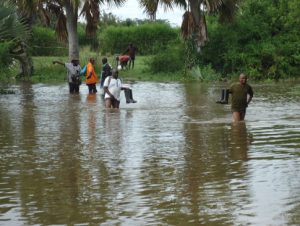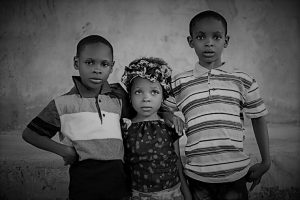According to Andy Brooks, UNICEF’s Regional Child Protection Advisor for Eastern and Southern Africa, there are alarming rates of child marriage and FGM across the Horn of Africa — with some destitute families arranging to marry off girls as young as twelve to men more than five times their age. Child marriage has increased by more than double the usual amount in the worst-affected areas of Ethiopia over the past year. Due to the effects of the crisis, the number of kids who are at risk of dropping out of school in Ethiopia, Kenya, and Somalia has tripled in the past three months. As a result, a large number of adolescent girls are now more at risk of having FGM and being forced into marriage, among other child protection risks.
Families throughout the Horn of Africa are forced to make difficult decisions to survive as the drought brought on by climate change depletes water supplies and kills livestock, and the skyrocketing cost of food and gasoline is made worse by the knock-on effects of the conflict in Ukraine. According to the Famine Early Warning Network, more than 1.8 million children in the area are in urgent need of treatment for life-threatening severe acute malnutrition, and 213,000 people in Somalia are currently considered to be at risk of hunger. Parents and other family members are increasingly getting girls married off to get dowries to support the rest of the family, to have one less mouth to feed, or in an effort to help the bride enter a better-heeled household.
Child marriage and FGM put an end to childhoods, causing girls to drop out of school and making them more susceptible to domestic abuse and a lifetime of poverty. The scope of the issue is not well represented since there are vast areas of the Horn of Africa without specialized facilities where cases can be reported. In order to scale up its response in Ethiopia, Kenya, and Somalia in order to save lives both immediately and over the long term, UNICEF urgently needs more funds. According to UNICEF’s study of publicly accessible government data and humanitarian assessments;
- More and more girls in the Horn of Africa are in danger of dropping out of school as the crisis worsens, putting them at an increased risk of child marriage and FGM.
- The number of children in Ethiopia, Kenya, and Somalia who are at risk of dropping out of school as a result of the drought has increased from 1.1 million to an estimated 3.3 million in only three months.
- Between January and April 2021 and the same time in 2022, child marriage surged by an average of 119 percent in Ethiopia’s three drought-stricken regions: Somali, Oromia, and Southern Nations, Nationalities, and Peoples’ Region (SNNP). FGM cases increased by 27% in the SNNP region during the same period. Families may think about marrying off even more girls as dowries of money, food, and livestock are dwindling as a result of the drought. People are being forced from their homes by the crisis, including community and social workers who were assisting families to prevent child marriage and FGM for girls.
- In a January evaluation conducted in Somaliland, about a quarter of those surveyed claimed that the drought had increased gender-based violence (GBV), including child marriage, domestic violence, and sexual assault, with rises of more than 50% in some areas. In February, a different assessment of Puntland’s humanitarian needs discovered that child marriage accounted for 59% of cases reported to service providers, many of which also involved FGM.
- In Kenya, girls are more likely to be subjected to FGM and child marriage. FGM hotspots already exist in 14 of the 23 counties hit by the drought, with prevalence rates reaching 98%. As families in these places prepare their daughters for marriage, girls are now at risk of being cut at earlier ages. There are also allegations of girls from border regions being taken to neighbouring nations to undergo FGM or being married to older men in nations where FGM rates may be greater.
- Women and girls in the region are more exposed to sexual violence because they must go farther to acquire water and other necessities in drought-affected areas. According to research by the Kenya Red Cross, women and girls in Kenya are travelling up to 30 kilometers in certain places, more than three times as far as they were previously.
Four rainy seasons have failed in the Horn of Africa in the past two years, and predictions indicate that a fifth rainy season, which runs from October to December, is also likely to be unsuccessful. The issue is intensifying due to the fighting in Ukraine. 92% of Somalia’s wheat used to come from Russia and Ukraine, but supply routes are now closed. Additionally, rising food costs prevent people from purchasing basic necessities.
In order to meet the growing need for protection among vulnerable women and children around the Horn of Africa, UNICEF is striving to provide access to life-saving child protection and GBV services. This entails implementing community-based initiatives to lower the likelihood of exploitation, abuse, and child marriage as well as offering assistance to assist women and children in healing from violence. UNICEF is urging an urgent expansion of programs to address GBV and child protection, particularly through permanent services and mobile teams to serve the most vulnerable.







